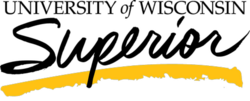Founded in 1893 and nestled on the shores of Lake Superior in the city of Superior, Wisconsin, the University of Wisconsin-Superior (UW-Superior) is a comprehensive institution that prides itself on its long-standing commitment to academic excellence, community engagement, and providing a supportive learning environment. As a smaller university, it boasts a close-knit community with a student population that allows for personalized attention, fostering an atmosphere where students are not just numbers but integral members of the campus community.
UW-Superior differentiates itself with distinct programs such as the Transportation and Logistics Management major, which leverages the region's status as a transportation hub to provide students with industry-relevant education and hands-on experiences. The Lake Superior Research Institute (LSRI), a unique asset to the university, offers students opportunities to engage in environmental research that has direct impacts on the Great Lakes region. In addition, the university's educational approach is augmented by the First Nations Center, which provides a platform for Indigenous students and others to learn about and appreciate Native American culture, traditions, and contributions.
The university excels in fostering a supportive and inclusive environment, underscored by its recognition as a Military Friendly School. This accolade attests to the university's dedication to serving military members, veterans, and their families through comprehensive support services and programs. Furthermore, UW-Superior's commitment to sustainability is evident through initiatives like the Yellowjacket Union, a LEED-certified building that underscores the institution's pledge to environmental stewardship. The university also makes positive community impacts through volunteering efforts, service-learning projects, and partnerships with local organizations, all of which contribute significantly to the economic and social vitality of the Superior region.
Despite these strengths, UW-Superior faces certain challenges, such as the trend of declining enrollment that has affected many regional institutions due to demographic shifts and competitive higher education landscapes. This has led to budgetary constraints, which in turn can impact the range of courses and services offered. Additionally, being located in a smaller, less metropolitan area might limit students' access to the broad array of internships and job placements typically available in larger cities. The university has taken steps toward addressing these issues, such as developing targeted recruitment strategies and cultivating relationships with local and regional businesses to expand opportunities for students. However, these efforts continue to be an ongoing challenge that UW-Superior must actively manage to maintain its standard of excellence and sustain its positive impact on the community.



